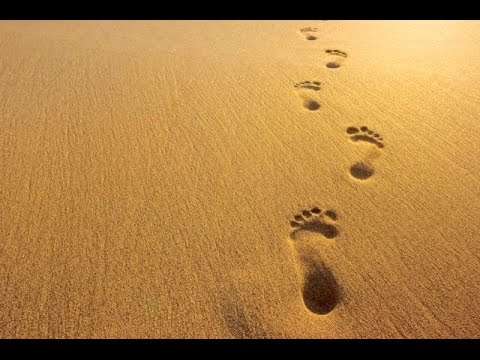Spiritual Sunday
Today’s Gospel reading, Luke 9:51-62, includes Jesus’s seemingly harsh admonition to a young man to “let the dead bury their own dead.” This occurs after the young man asks Jesus for an extension. A famous Longfellow poem makes reference to the passage, and when one examines the conversation between poem and scripture, one comes to a deep understanding of both.
First, here’s the passage from Luke:
As they were going along the road, someone said to him, “I will follow you wherever you go.” And Jesus said to him, “Foxes have holes, and birds of the air have nests; but the Son of Man has nowhere to lay his head.” To another he said, “Follow me.” But he said, “Lord, first let me go and bury my father.” But Jesus said to him, “Let the dead bury their own dead; but as for you, go and proclaim the kingdom of God.” Another said, “I will follow you, Lord; but let me first say farewell to those at my home.” Jesus said to him, “No one who puts a hand to the plow and looks back is fit for the kingdom of God.”
And now here’s the poem. I’ve bolded the passage that alludes to Luke:
A Psalm of Life
By Henry Wadsworth Longfellow
What the young man said to the psalmist
Tell me not, in mournful numbers,
Life is but an empty dream!
For the soul is dead that slumbers,
And things are not what they seem.
Life is real! Life is earnest!
And the grave is not its goal;
Dust thou art, to dust returnest,
Was not spoken of the soul.
Not enjoyment, and not sorrow,
Is our destined end or way;
But to act, that each to-morrow
Find us farther than to-day.
Art is long, and Time is fleeting,
And our hearts, though stout and brave,
Still, like muffled drums, are beating
Funeral marches to the grave.
In the world’s broad field of battle,
In the bivouac of Life,
Be not like dumb, driven cattle!
Be a hero in the strife!
Trust no Future, howe’er pleasant!
Let the dead Past bury its dead!
Act,— act in the living Present!
Heart within, and God o’erhead!
Lives of great men all remind us
We can make our lives sublime,
And, departing, leave behind us
Footprints on the sands of time;
Footprints, that perhaps another,
Sailing o’er life’s solemn main,
A forlorn and shipwrecked brother,
Seeing, shall take heart again.
Let us, then, be up and doing,
With a heart for any fate;
Still achieving, still pursuing,
Learn to labor and to wait.
It may be, in the Gospel passage, that Jesus is picking up on half-hearted commitment and replying in dramatic fashion to accentuate what is at stake. Presumably even Jesus wouldn’t begrudge allowing someone to go and bury a parent if that person really meant to return and wasn’t just engaging in evasive action. Jesus is pretty good at reading actual motives.
And there may also be an element of Jesus’s famous injunction (Luke 14:26) to leave father and mother to become his disciple. As cold and heartless as that sounds, it is a way of thinking about God’s presence in the world in a new way. One can be blinded by traditional ways of thinking.
Longfellow’s young man is certainly challenging the “wisdom” of his elders. He may have in mind Psalm 39:5-7:
Behold, thou hast made my days as an handbreadth; and mine age is as nothing before thee: verily every man at his best state is altogether vanity. Surely every man walketh in a vain shew: surely they are disquieted in vain: he heapeth up riches, and knoweth not who shall gather them. And now, Lord, what wait I for? my hope is in thee.
Perhaps he’s also thinking of the opening lines of Ecclesiastes (1:2-3):
Vanity of vanities, saith the Preacher, vanity of vanities; all is vanity.What profit hath a man of all his labour which he taketh under the sun?
To be sure, there is genuine wisdom in both the psalm and the Ecclesiastes passage that Jesus would acknowledge: if we place our faith in riches and in labor, then we ignore the spirit. But it is also true that these passages can be interpreted as calling us to reject the world altogether. If we do that, we will fail to find God in the here and now. There is a certain strain of fatalism in both passages that a young person very understandably would object to. Isn’t there something wrong with giving up on all the heaven-sent opportunities before us?
Therefore, when the young man says, “Let the dead Past bury its dead,” he is calling out those who, looking back over their lives, conclude that all our earthly efforts are futile. If we eschew human endeavor and simply wait for heaven in the hereafter, we spurn God’s gifts. The important thing, therefore, is to
Act,— act in the living Present!
Heart within, and God o’erhead!
Perhaps the young man will leave “footprints on the sands of time” and perhaps not. Note that he is not saying that he wants to build up riches. He does not know what the fruit of his labor will be.
Rather than casting his eyes over human endeavor and declaring it to be an empty dream, he will “learn to labor and to wait.” God is in the laboring.
Further note: My friend Sue Schmidt, who has contributed Spiritual Sunday posts in the past, sent the following e-mail. Her passage from Matthew meshes perfectly with Longfellow’s poem:
Jesus says at another point, “The kingdom of God comes through forceful men and forceful men take hold of it” (Matt 11:12ff). Here’s a great article about that.* We all know that to change things is difficult, and one must be prepared to live and act.


